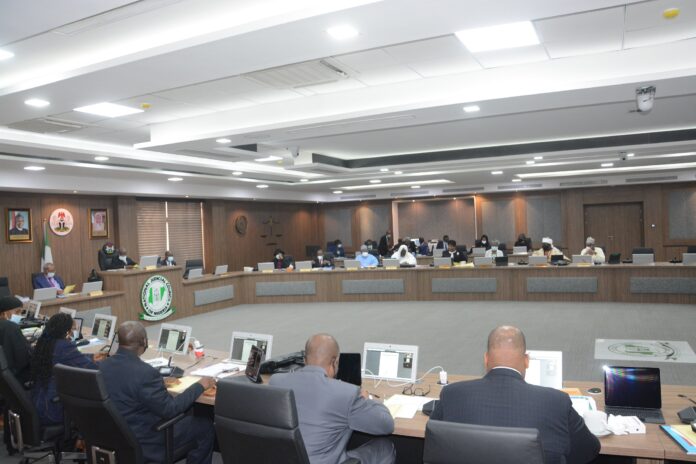- Justice Kekere-Ekun, JSC, to chair screening committee
The National Judicial Council (NJC) headed by the Chief Justice of Nigeria (CJN), Justice Olukayode Ariwoola is set to screen 44 candidates shortlisted by the Federal Judicial Service Commission (FJSC) for appointment as justices of the Appeal Court.
The FJSC headed by Chief Justice Ariwoola shortlisted the 44 candidates from a list of 89 nominees for the available vacancies at the Appeal Court bench.
The 44 shortlisted candidates are on two lists: a priority list consisting of 22 names and a reserve list containing 22 names.
The tradition of the FJSC is to produce the second list usually dubbed ‘the reserve list’ for the purpose of making NJC’s screening exercise easy.
According to a source at the Federal Judicial Service Commission, “Appointment into the bench takes into consideration the provision of Section 14 of the 1999 Constitution which mandates every governmental agency or establishment to reflect the federal character of the country.
“So, what we normally do is to look at the geopolitical zones that have no representation on the court and pick suitably qualified candidates in pairs.
“The reason for that is that during the final screening exercise of the candidates by the NJC, where the candidate who is on the priority list is not found appointable, the Council can invite the one on the reserve list for screening.
“It has happened a number of times when candidates on the reserve list are preferred to the ones on the priority list,” the source added.
Although the CJN is the chairman of the NJC, impeccable sources said Justice Kudirat Motonmori Olatokunbo Kekere-Ekun who is the Deputy Chairman of NJC would head the screening exercise.
Justice Kekere-Ekun is warming up to take over from the retiring Chief Justice Ariwoola.
The screening committee begins work today.
The nominees who made the list including Justice Eberechi Wike, the wife of the Federal Capital Territory Minister, are serving judges of both the state and federal high courts in various geo-political zones of the country.
Justices of the Court of Appeal must be qualified to practice law in Nigeria, and must have been so qualified for a period not less than twelve years in practice.
The Federal Court of Appeal of Nigeria is the intermediate Appellate Court of the Nigerian federal court system.
The Court of Appeal of Nigeria decides appeals from the district courts within the federal judicial system, and in some instances from other designated federal courts and administrative agencies.
BAR & BENCH WATCH reports that out of 89 nominees that jostled for the available vacancies at the intermediate appellate court, only 22 names will make the final list of the NJC.
NJC is a creation of Section 153 of the 1999 Constitution charged with the responsibility of hiring and firing judicial officers in the country.
The list of the recommended candidates will be forwarded to President Bola Ahmed Tinubu for ratification in line with section 238(2) to make the appointment cohate.
Under the law, such recommended candidates for appointment into the Appeal Court bench do not require the approval of the senate.
The section provides that the appointment of a person to the office of a Justice of the Court of Appeal shall be made by the President on the recommendation of the National Judicial Council.
BAR & BENCH WATCH can confirm that the selection process, so far, is sensitive to the provision of section 14 (3) of the 1999 Constitution.
The section provides: “the composition of the government of the Federation or any of its agencies and the conduct of its affairs shall be carried out in such manner as to reflect the federal character of Nigeria and the need to promote national unity and also to command national loyalty, thereby ensuring that there shall be no predominance of persons from few states or from a few ethnic or other sectional groups in that government or in any of its agencies.”
Specifically, a close scrutiny of the list shows that it contains names of judicial officers serving in both state and federal high courts across the six geo-political zones of the country.
In line with the provision of the Constitution, Justices of the Court of appeal have a mandatory retirement age of 70years




